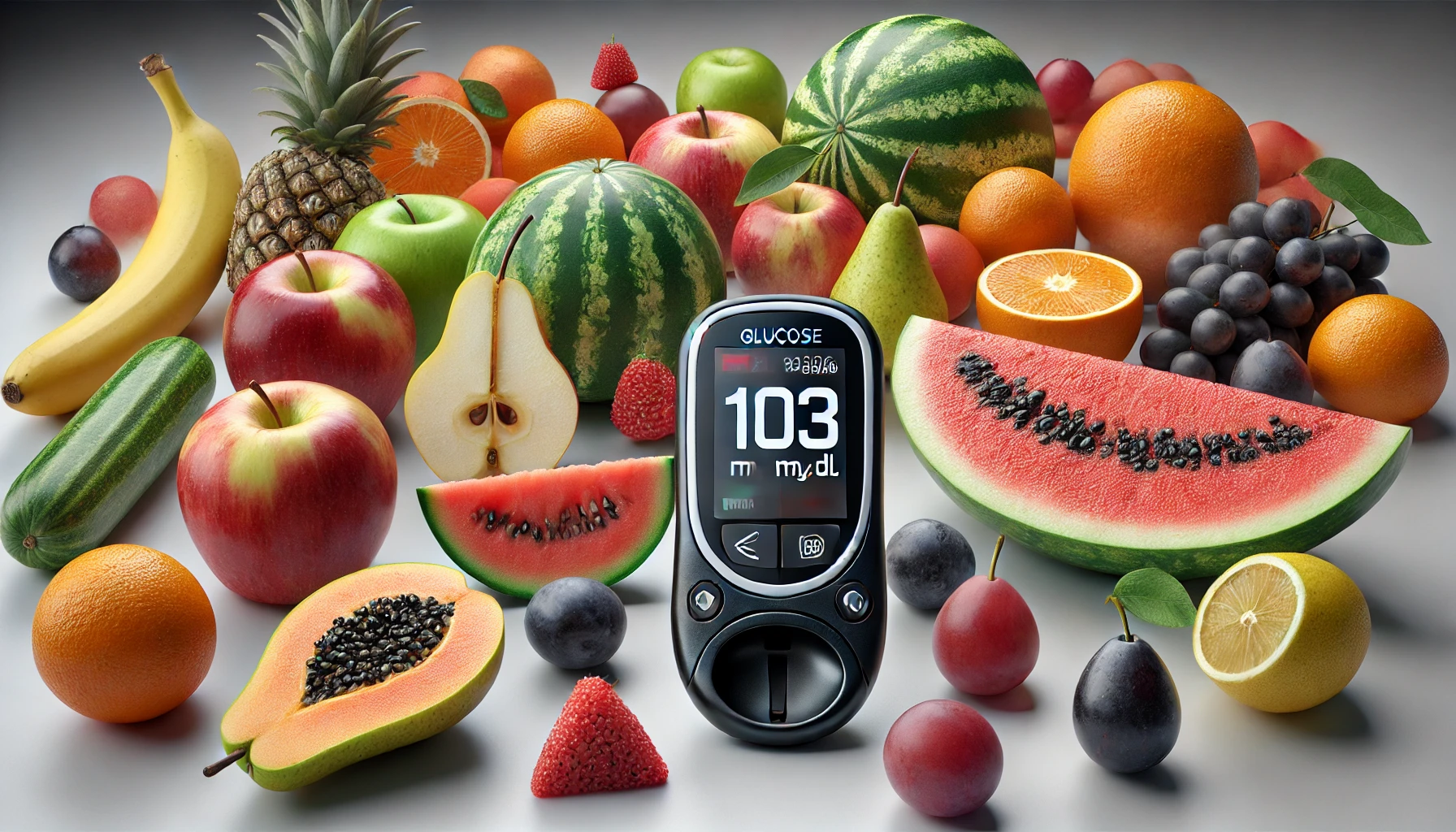Best Fruits for Diabetes
This post was written with Consensus AI Academic Search Engine – please read our Disclaimer at the end of this article. Incorporating fruits like kiwifruit, citrus fruits, papaya, and raisins into a diabetic diet can provide essential nutrients without adversely affecting blood sugar levels. Additionally, miracle fruit offers a natural way to enhance the sweetness of foods without adding sugar. These fruits, when consumed in moderation and as part of a balanced diet, can support better glycemic control and overall health in individuals with diabetes.
By making informed choices and understanding the glycemic impact of different fruits, individuals with diabetes can enjoy a varied and nutritious diet.
Managing diabetes involves careful dietary choices to maintain stable blood sugar levels. Fruits, despite their natural sugar content, can be a healthy part of a diabetic diet due to their fiber, vitamins, and antioxidants. Here, we explore some of the best fruits for diabetes based on recent research findings.
1. Kiwifruit
Benefits
Kiwifruit has been shown to significantly reduce the glycemic response when substituted for other carbohydrate sources. In a study where participants consumed kiwifruit along with wheaten starch biscuits, the glycemic response peak was reduced by 35% compared to the biscuits alone. This effect is attributed to the fruit’s high fiber content and its ability to slow down digestion and glucose absorption2.
Mechanisms
The study identified several gut-level factors contributing to this effect, including high gastric acidification, swelling and dispersion of fruit cell walls, and changes in the rheological properties of the digested fruit, which collectively retard digestion and glucose diffusion2.
2. Citrus Fruits (Oranges)
Benefits
Citrus fruits like oranges have a relatively low glycemic index and can be safely included in the diet of individuals with diabetes. A study comparing the plasma glucose response to various fruits found that oranges had a lower peak plasma glucose concentration and incremental area under the glucose curve compared to other fruits like bananas and pineapples5.
Glycemic Response
The study concluded that the plasma glucose response to oranges was significantly lower than that of an equivalent carbohydrate load of glucose, making it a suitable fruit for diabetes management5.
3. Berries
Benefits
Berries, such as strawberries and blueberries, are rich in antioxidants and fiber, which can help manage blood sugar levels. Although specific studies on berries were not included in the provided data, their general nutritional profile supports their inclusion in a diabetic diet.
4. Papaya
Benefits
Papaya has been shown to have a favorable glycemic response in individuals with diabetes. In a study assessing the plasma glucose response to various fruits, papaya had one of the lowest maximum increases in postprandial plasma glucose and incremental area under the glucose curve5.
Glycemic Response
The study indicated that the glycemic indices of papaya were lower than those of an equivalent carbohydrate load of glucose, suggesting its safety and suitability for diabetic patients5.
5. Raisins
Benefits
Raisins, despite their high sugar content, did not negatively impact glycemic control in a study where participants consumed them daily for 12 weeks. The study found no significant differences in HbA1c, fasting glucose, or other glycemic indices between the raisin group and the control group1.
Cardiovascular Health
Additionally, the study noted that raisins did not adversely affect cardiovascular risk factors, making them a safe snack option for individuals with diabetes1.
6. Miracle Fruit
Benefits
Miracle fruit, known for its sweetness-enhancing properties, can improve the palatability of sour foods without adding sugar. A study found that miracle fruit significantly improved the hedonic responses to sour foods in individuals with diabetes, suggesting it as a potential natural sweetener alternative7.
Hedonic Responses
Participants reported higher liking scores for the flavor, texture, and overall taste of sour foods after consuming miracle fruit, indicating its effectiveness in enhancing the enjoyment of a diabetic-friendly diet7.
Disclaimer
The content presented in this blog is generated by Consensus, an AI-powered academic search engine, and is based on publicly available scientific literature. While every effort is made to provide accurate, up-to-date, and well-researched information, the content is intended for informational and educational purposes only. It does not constitute medical advice, diagnosis, or treatment. Always consult a qualified healthcare professional before making any decisions regarding medical conditions, treatments, or medications. The AI system’s analysis may not cover all perspectives, emerging research, or individual cases, and it is not a substitute for professional expertise. Neither the blog publisher nor the developers of the AI-powered search engine are responsible for any actions taken based on the information provided in this content. Use of this information is at your own risk. Citations to the original scientific studies are included for reference, but these studies should be reviewed in full and interpreted with the guidance of a healthcare or research professional.
If you are experiencing a medical emergency, please seek immediate attention from a healthcare provider.
